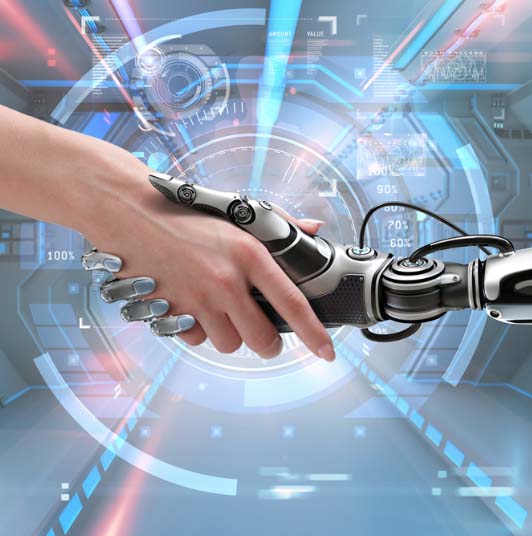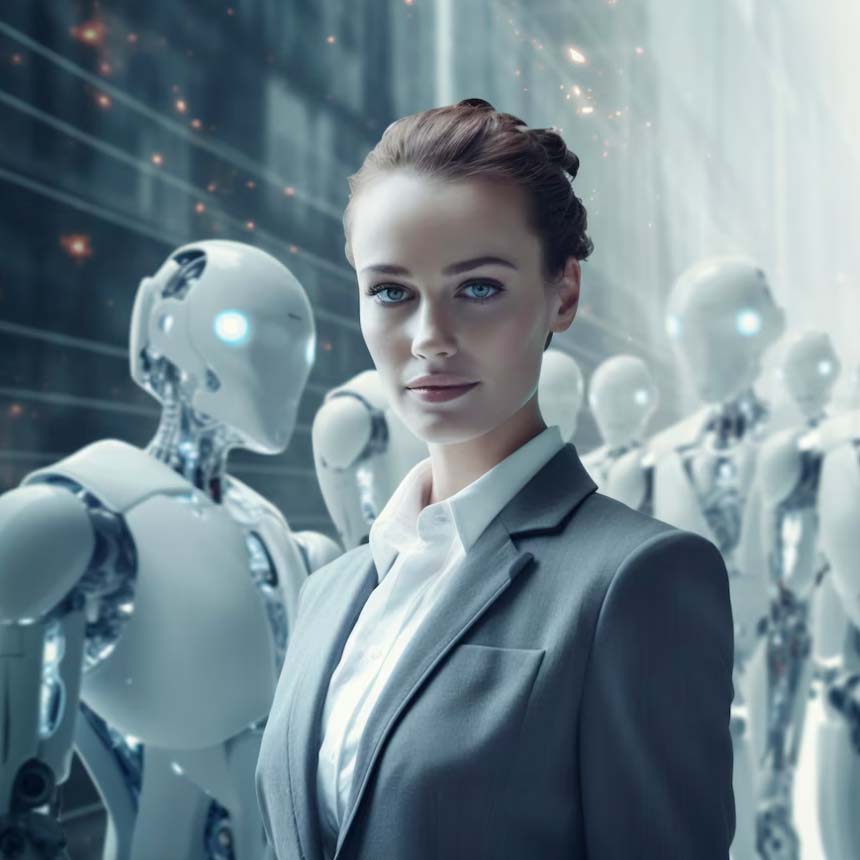As artificial intelligence (AI) continues its rapid development, it’s conceivable that by 2050, robots and AI systems may outnumber humans in the workplace. While Human Resource (HR) systems will remain essential, their role will be radically redefined. Here’s how we can envision HR evolving in such a future:

1. Hybrid Workforce Management (Humans + Robots)
By 2050, HR will likely evolve into a Workforce & Humanoid Resource Management System (WHRMS), which is a hybrid platform that manages both human employees and intelligent machines.
The WHRMS will unify scheduling and task delegation, assigning duties based on the comparative strengths of humans and robots. It will also monitor the performance of AI agents much like it does for humans for tracking uptime, efficiency, and output quality. While robots don’t take leave, the system must still manage their maintenance and upgrade cycles.
Moreover, WHRMS will need to enforce ethical guidelines and fail-safes when assigning roles to AI or robots. It should also include digital twin management that overseeing the digital replicas of humans and machines used for simulations, testing, and predictive planning.
2. Talent Evolution & Human Empowerment
With AI handling routine and repetitive tasks, human roles will increasingly focus on creativity, empathy, leadership, and innovation. As a result, HR systems must evolve to assess cognitive and emotional intelligence, not just technical skills.
Job roles will need redefinition to highlight uniquely human contributions. AI-assisted career pathing will help individuals navigate future-proof careers. Additionally, the system must incorporate neurodiversity and adaptability metrics as part of a dynamic talent development framework.


3. Ethics, Inclusion & Scalable Governance
As AI becomes more involved in hiring, management, and operational decisions, ethical governance will become a core HR module. This includes bias auditing of AI-driven recruitment and decision-making processes.
Human-AI collaboration policies will be crucial for defining rights, limitations, safety protocols, and accountability structures. These frameworks may give rise to robotic transparency standards and real-time oversight of AI behavior to prevent misuse or ethical violations.
4. Biometric, Cognitive & Neural Interfaces
With advances in neural and biometric technology, future HR systems will integrate cognitive data, biometric feedback, and mental wellness indicators for both safety and performance optimization.
Examples include:
- Real-time mental fatigue detection for workload balancing
- Brain-computer interface (BCI) logs to gauge employee engagement
- Ethical management of digital augmentation and neuro-enhancements


5. Predictive & Sentient HR Analytics
Future HR analytics will be forward-looking. With continuous data streams feeding the system, AI will simulate team dynamics, predict burnout, attrition, and innovation potential before they manifest.
HR systems may also conduct “real-time empathy scans” of workplace culture, identifying tensions, detecting morale dips, and taking preventive action to preserve a healthy work environment.
6. AI as HR Partners or Managers
In certain contexts, AI may function as Digital HR Officers, making autonomous decisions within ethical boundaries. These systems could serve as:
- Virtual mentors or personal coaches, offering tailored guidance
- Bias-neutral performance reviewers, supporting fairer evaluations
- Autonomous trainers delivering dynamic and customized learning paths


Conclusion
As digital transformation accelerates, HR systems must go beyond workforce administration to enable a fully interconnected environment. In today’s context, the integration with non-HR systems such as access control, visitor management, asset tracking, and facility booking, is already critical.
Looking ahead, HR will increasingly integrate with broader ecosystems, including smart cities, contributing to sustainability efforts like carbon footprint tracking. In the AI-transformed era, HR is not just about managing people, it’s about orchestrating the complex interplay between humans, machines, ethics, and society.
03-8070 9933 • Email • www.timeteccloud.com • Interest Form
